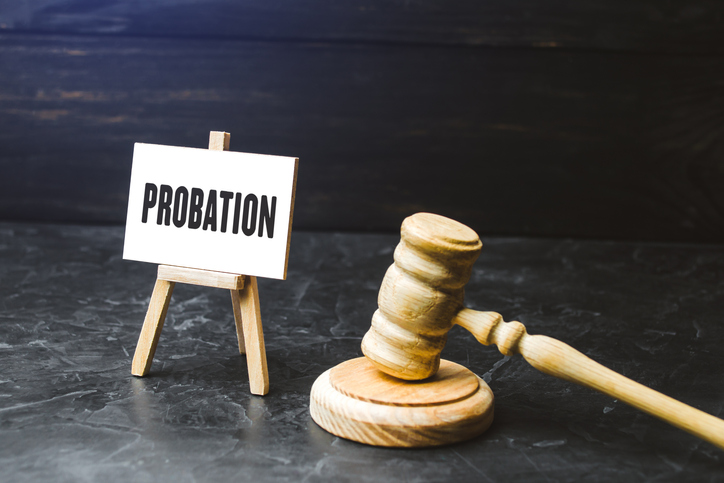Probation and parole are legal terms often used interchangeably, but they have distinct meanings in the criminal justice system. These terms often get mixed up, leading to confusion. If you have also found yourself in need of clarification about them, you are not alone. We are here to shed light on what they mean, whom they apply to, and how a criminal defense lawyer can assist you or a loved one on probation or parole. Keep reading to understand how these two legal concepts differ.
Probation

Probation is a court-ordered alternative to incarceration. It is often offered to first-time offenders or individuals convicted of non-violent crimes. Instead of serving time in jail, individuals on probation can remain in the community, although under specific conditions and supervision.
The judge usually grants probation as part of the sentencing before incarceration, although not all offenders are eligible for probation. Probation allows convicted criminals to demonstrate their commitment to rehabilitation and avoid incarceration.
Eligibility for probation depends on the severity of the offense, the defendant’s criminal history, the potential risk to public safety, and the defendant’s demonstration of remorse for their actions. Once placed on probation, the individual is assigned to a probation officer who explains the conditions for probation, expectation and establishes a rehabilitation plan.
Probationers must strictly comply with the conditions outlined in their probation order, such as regular check-ins with the probation officer, attending counseling or treatment programs, and avoiding criminal activity to avoid revocation.
Parole
Parole, on the other hand, is a form of supervised release granted to individuals who have served a portion of their prison sentence. Such individuals are released before their originally scheduled date.
Generally, individuals convicted of serious crimes, such as murder or sexual offenses, may be subject to longer periods of incarceration before becoming eligible for parole. To be eligible for parole, one must have shown good behavior, commitment to change, and a desire to join society as a productive and cooperative member.
The Parole Process
Here is an overview of the parole process.
- Parole Board Review
Parole is granted by a parole board consisting of appointed officials who review an inmate’s case to assess their eligibility for release.
- Parole Hearing
Inmates deemed eligible for parole undergo a parole hearing. During the hearing, the parole board hears the inmate’s original crime, current status, and ability to function in society. The parole board may also extend invitations to victims, witnesses, other interested parties, and the general public, allowing them to express their opinions regarding the suitability of the convict for parole. The parole board carefully evaluates the information and determines whether to grant parole.
- Conditions for Parole
If parole is granted, specific conditions are imposed on the parolee to ensure compliance with their release terms. These include:
- Regular check-ins with the assigned parole officer
- Regular drug or alcohol testing
- Travel restrictions depending on terms of parole
- Maintaining stable employment or education
- Avoiding criminal association or activities.
If paroled convicts violate the conditions of their release, it can result in a parole violation in California, leading to a hearing for revocation. Prisoners may be returned to prison for the remainder of their term if found guilty.
How a Criminal Defense Lawyer Can Assist During Probation or Parole
Having qualified legal representation during probation or parole can provide several advantages, including:
Understanding Terms of Probation or Parole
A lawyer can explain the conditions of probation in detail, ensuring you understand your rights and obligations. They can also guide you on how to comply with the conditions effectively.
Representation During Court Hearings or Parole Board Hearings
If the probation or parole conditions seem excessive or inappropriate, a lawyer can advocate for more reasonable and suitable modifications.
Handling Violation Allegations
If you are accused of violating the conditions, a lawyer can provide legal representation, protect your rights, and mount a defense against the allegations. They can help gather evidence, challenge false accusations, and present a compelling case to minimize potential consequences.
Petitioning Early Termination of Probation or Parole
A lawyer can also assist in petitioning the court for early termination if you have demonstrated exemplary compliance with all requirements.
Sealing Your Criminal Record
Upon successful completion of probation or parole, a criminal defense attorney can assist in expunging or sealing your criminal record so that you may have a fresh start and secure opportunities without the hindrance of a criminal record.
Consult With a Qualified Criminal Defense Attorney Today
Understanding the differences between probation and parole is essential but cannot be replaced by expert legal guidance. If you have been convicted of a criminal offense in Los Angeles, contact the qualified and experienced criminal defense attorneys at the Kosnett Law firm today at (310) 445-5900 to schedule a free initial consultation.






